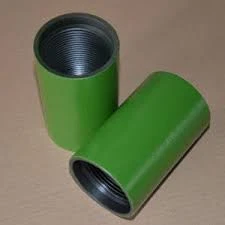Understanding the Uses and Benefits of Steel Pipe Couplings in Construction Projects
Understanding Steel Pipe Couplings A Comprehensive Overview
Steel pipe couplings are essential components in various industrial applications, widely used for joining two sections of pipe together. These couplings play a crucial role in maintaining the integrity of piping systems, ensuring that they function efficiently under various conditions. In this article, we will explore the types, applications, advantages, and crucial considerations when working with steel pipe couplings.
Types of Steel Pipe Couplings
There are several types of steel pipe couplings designed to meet different requirements in piping systems. The most common types include
1. Threaded Couplings These couplings are designed with internal threads that allow two pipes to be joined securely. They are easy to install and provide a tight seal, making them suitable for many applications, including plumbing and gas lines.
2. Welded Couplings Welded couplings are permanently attached to pipes using welding techniques. This method ensures a strong bond, ideal for high-pressure applications such as in oil and gas industries.
3. Flanged Couplings These couplings feature flanges at both ends, allowing them to be bolted to the corresponding flanges on pipes. Flanged couplings are commonly used in large piping systems where easy disassembly is required, such as in water treatment plants.
4. Compression Couplings These are designed for quick connections without the need for welding or threading. They use a compression mechanism to secure the pipes, which is particularly useful in repair work or temporary setups.
5. Transition Couplings Used to connect pipes of different materials or diameters, transition couplings accommodate changes in pipe specifications and are essential in diverse piping systems.
Applications of Steel Pipe Couplings
Steel pipe couplings are versatile and find applications across various industries, including
- Oil and Gas In this sector, maintaining the integrity and safety of pipelines is paramount. Steel pipe couplings are used to handle high-pressure flows and harsh conditions commonly found in this field.
- Construction Steel couplings are widely utilized in water supply lines, drainage systems, and structural applications. They facilitate seamless connections between pipes, ensuring reliable water management and structural soundness.
- Manufacturing Couplings are vital in manufacturing processes involving the transfer of fluids or gases. They help maintain the flow and pressure necessary for various production lines.
steel pipe coupling

- HVAC Systems In heating, ventilation, and air conditioning systems, steel pipe couplings connect ductwork, allowing for efficient airflow and temperature control.
Advantages of Steel Pipe Couplings
The use of steel pipe couplings offers several benefits, including
- Durability Steel is known for its strength and resistance to corrosion, making steel couplings suitable for harsh environments.
- Versatility With various designs available, steel couplings can be adapted to different applications and materials, ensuring broad usability.
- Cost-Effectiveness When properly installed, steel couplings can reduce maintenance costs and extend the life of piping systems.
- Ease of Installation Many types of couplings, like threaded and compression couplings, offer straightforward installation processes, saving time and labor costs.
Considerations in Choosing Steel Pipe Couplings
When selecting steel pipe couplings for a specific application, there are several factors to consider
1. Pipe Size and Material Ensuring compatibility between the pipes and couplings is crucial for safety and functionality.
2. Pressure and Temperature Ratings Couplings must be rated for the specific pressure and temperature conditions they will endure in the application.
3. Installation Method Depending on the site conditions and requirements, the ease of installation should be considered when selecting the type of coupling.
4. Standards and Certifications It is essential to choose couplings that meet relevant industry standards to ensure safety and compliance.
In conclusion, steel pipe couplings are vital components in modern piping systems, providing strength, versatility, and reliability across a range of industries. Understanding the various types, applications, and considerations for steel couplings can help ensure that the right choice is made for any project, ultimately leading to more efficient and safe operations.
-
Tubing Crossover - API Compatible, Custom Sizes, In StockNewsNov.10,2025
-
Tubing Coupling | High-Strength, Leak-Proof Steel CouplingsNewsNov.10,2025
-
Wholesale API Threading Casing Coupling | API 5CT, Fast ShipNewsNov.10,2025
-
Pup Joint Supplier | API Certified, Custom, Quick ShipNewsNov.10,2025
-
Pup Joint Manufacturers | Precision Machined, Fast DeliveryNewsNov.10,2025
-
Tubing Coupling | Precision Steel, Leak-Proof, Fast DeliveryNewsNov.03,2025







